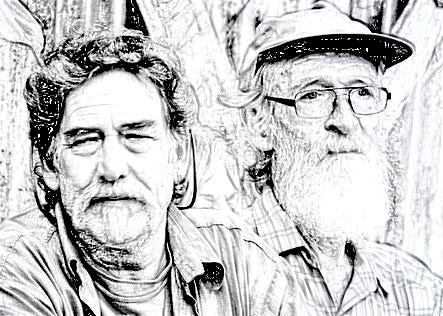My foolish assessment of a tortured Catholic man
Jack Kerouac yearned for Catholicism - I didn't know that
Most folks who remember or have read about Jack Kerouac might have pigeonholed him as I did. When I was young in the 1960s, I considered Kerouac an obnoxious narcissist and followed him only with fleeting interest. His stream of consciousness seemed not just odd writing but lazy. His brilliance, unrealized by me, captured a part of Americana similar to that of other era giants, writers like F. Scott Fitzgerald and even Henry Thoreau.
What did I know? I was just a kid. But I never amended or tested my youngish reaction to Kerouac.
The fellow was an American novelist and poet famously hailed as the founder of the “Beat Generation,” the precursor to the Hippie Movement of the late 1960s. Kerouac palled around with celebrity stalwarts like William S. Burroughs and Allen Ginsberg. Born in Canada and formed in the nation’s odd-sounding version of French, Kerouac became an American citizen, raised in a French-speaking home in Lowell, Massachusetts.
Image by rawpixel
I looked at Kerouac like a cartoon character, a wanton, mixed-up player on the stage of celebrity. The Gospel scripture for today (John 21:20-25) shook up the apostles, specifically Peter. He was presumptuous, seeing his fellow apostle only in comparison to himself. You and I can be like that, too.
I had played the fool with Kerouac. A Catholic historian, James Hanna, gave me a total mind reframe. An old high school friend, Dan Valentini, forwarded a recent Jack Kerouac article from Hanna. “This is an interesting essay complying with the ancient Latin maxim: Of the dead, speak only good,” Dan wrote.
Thanks to James K. Hanna’s Jack Kerouac’s Creedal Moment, published in the May 2024 New Oxford Review and reprinted on his Substack page, “The Obscure, Forgotten, and Undiscovered,” I experienced holy compassion.
Hanna was very kind to the tortured Kerouac, forcing me to re-think my youth-formed but long-held glib assessment. The man who died of alcohol poisoning at only 47 suffered miserably from an angst of life’s general unfairness but somehow managed to hang on to the passion of his childhood faith. Here’s a summary of Hanna’s article:
(Hanna writes about The Firing Line, a weekly national television program hosted by William F. Buckley, Jr. from 1966-99)
On September 4, 1968, the Firing Line episode was Kerouac’s final television appearance. We can see Kerouac give a flash of insight into his faith. It came about eight minutes into the program, in response to William F. Buckley’s asking him to what extent the Beat Generation was related to the hippies. With eyes closed, Kerouac began with a slight slur, saying his original idea was “a movement of beatitude and pleasure in life and tenderness,” which, he said, had been corrupted by “hoodlums and communists” and misunderstood by observers. The media, he said, “called it…a ‘beat-mutiny,’ a ‘beat-insurrection’ — words I never used.” Kerouac opened his eyes, looked purposefully at Buckley, and with both hands open-palmed and moving in concord to emphasize his sincerity, he proclaimed in a clear, articulate, and well-paced manner, “Being a Catholic, I believe in order, tenderness, and piety.”
What a lovely, tragic, heart-wrenching vision of this man. A Catholic portrait of Kerouac had never come up in anything I’d read of him before. Some have interpreted his opinion of Catholicism as a “dry faith.” I doubt that now. Conflicted, sin-riddled, but not dry. The words of Jesus to Peter rung in my ears.
When Peter saw [the apostle John], he said to Jesus, "Lord, what about him?" Jesus said to him, "What if I want him to remain until I come? What concern is it of yours? You follow me."
I’m not imagining that Jack Kerouac is like the Apostle John. I imagine Jesus correcting me, a shadow of Peter, holding a lifetime of derogatory assessment toward a man who struggled mightily but still held onto the beatitudes and treasured the order, tenderness, and piety of his Catholic faith.
My gruff 1960s—1970s memories of Kerouac were deposited by everything and everyone but the good Lord. Critics, saucy portrayals of his wildlife, and my difficult reading of his literature at age 17 cemented an opinion in my heart for 56 years.
I shoved his struggle aside, not knowing his heart’s center. This was unfair not just to Kerouac but also to my view of God's powerful ability to remain fixed upon the weak whom he deeply loves.
William F. Buckley, a wonderful Catholic man, was surely stunned also by Jack’s underlying dependence upon his faith. In my review of the episode where Kerouac joined two others in that telling interview with Buckley, I can see where media pundits and other analysts could miss the bottom of Kerouac’s barrel—his pleading for Buckley, and indeed all Catholics, to hear his yearning for goodness.
The collect, the alleluia for today tells us, “I will send to you the Spirit of truth, says the Lord; he will guide you to all truth.”
I pray that Jesus looked upon Keruoac’s pleading face with mercy. He died only months after that last interview. I pray for his soul, too, hopefully released from Purgatory already into the arms of the author of Kerouac’s keen, though addled, sense of order, tenderness, and piety.
Read John’s new book, Frank & Ralph, a fictional novel about the retired Guardian Angels of Jesus, in Catholic Nutshell News.
Chapter 3 of Frank & Ralph, ‘Stares from Heaven,’ excerpt:
“In a very real way, Frank and Ralph were the only combinations of angelic holiness with a brokenness familiar to human existence . . . With trepidation, the angelic hosts watched Frank and Ralph.”
Paid subscribers (only $6 a year) get access to new chapters as they are added throughout the coming months.







